Ever wondered what scientists have to say about their own subject? Like Einstein, who said science is great, provided you don’t have to earn a living doing it. Here are thoughts offered by some of the greatest scientists in history:

“The great tragedy of Science — the slaying of a beautiful hypothesis by an ugly fact.”
THOMAS HUXLEY: BIOLOGIST
1870

“…science consists in grouping facts so that general laws or conclusions may be drawn from them.”
CHARLES DARWIN: BIOLOGIST
1887

“It is the function of science to discover the existence of a general reign of order in nature and to find the causes governing this order. And this refers in equal measure to the relations of man (social and political) and to the entire universe as a whole…”
DMITRI MENDELEEV: CHEMIST
1901

“The real value of science is in the getting, and those who have tasted the pleasure of discovery alone know what science is. A problem solved is dead. A world without problems to be solved would be devoid of science.”
FREDERICK SODDY: CHEMIST
1912

“The aim of science is to seek the simplest explanations of complex facts. We are apt to fall into the error of thinking that the facts are simple because simplicity is the goal of our quest. The guiding motto in the life of every natural philosopher should be,
Seek simplicity and distrust it.”
ALFRED NORTH WHITEHEAD: MATHEMATICIAN
1919

“Science begets knowledge; opinion begets ignorance.”
HIPPOCRATES: PHYSICIAN
c. 400 BC

“Our society, in which reigns an eager desire for riches and luxury, does not understand the value of science. It does not realize that science is a most precious part of its moral patrimony. Nor does it take sufficient cognizance of the fact that science is at the base of all the progress that lightens the burden of life and lessens its suffering.”
MARIE CURIE: CHEMIST, PHYSICIST
1923

“Science is a wonderful thing if one does not have to earn one’s living at it. One should earn one’s living by work of which one is sure one is capable. Only when we do not have to be accountable to anybody can we find joy in scientific endeavor.”
ALBERT EINSTEIN: PHYSICIST
1951

“In science the opinions of a thousand are not worth as much as one tiny spark of reason in an individual man.”
GALILEO GALILEI: PHYSICIST, ASTRONOMER
1610

“Science makes people reach unselfishly for truth and objectivity; it teaches people to accept reality, with wonder and admiration, not to mention the deep awe and delight that the natural order of things brings to the true scientist.”
LISE MEITNER: PHYSICIST
1953

“It is a profound and necessary truth that the deep things in science are not found because they are useful; they are found because it was possible to find them.”
J. ROBERT OPPENHEIMER: PHYSICIST
1953

“Science is a game… In the presentation of a scientific problem, the other player is the good Lord. He has not only set the problem but also has devised the rules of the game – but they are not completely known, half of them are left for you to discover or to deduce.”
ERWIN SCHRÖDINGER: PHYSICIST
1955

“The important thing in science is not so much to obtain new facts as to discover new ways of thinking about them.”
WILLIAM LAWRENCE BRAGG: PHYSICIST
1957

“No doubt science cannot admit of compromises, and can only bring out the complete truth. Hence there must be controversy, and the strife may be, and sometimes must be, sharp. But must it even then be personal? Does it help science to attack the man as well as the statement?”
RUDOLF VIRCHOW: PATHOLOGIST
1861

“I strongly believe that fundamental science cannot be driven by instructional, industrial and government or military pressures. This was the reason why I decided, as far as possible, not to accept money from the government.”
C. V. RAMAN: PHYSICIST
1970

“Science is not a heartless pursuit of objective information; it is a creative human activity.”
STEPHEN JAY GOULD: PALEONTOLOGIST
1977

“Science is a self-correcting process. To be accepted, new ideas must survive the most rigorous standards of evidence and scrutiny.”
CARL SAGAN: PLANETARY SCIENTIST
1980

“Science is founded on uncertainty. Each time we learn something new and surprising, the astonishment comes with the realization that we were wrong before… In truth, whenever we discover a new fact it involves the elimination of old ones.”
LEWIS THOMAS: PHYSICIAN AND EDUCATOR
1980

“It is curious how often erroneous theories have had a beneficial effect for particular branches of science.”
ERNST MAYR: EVOLUTIONARY BIOLOGIST
1982

“Nor must we forget that in science there are no final truths.”
CLAUDE LÉVI-STRAUSS: ANTHROPOLOGIST
1990

“Science is an integral part of culture. It’s not this foreign thing, done by an arcane priesthood. It’s one of the glories of the human intellectual tradition.”
STEPHEN JAY GOULD: PALEONTOLOGIST
1990

“Of course, if one ignores contradictory observations, one can claim to have an “elegant” or “robust” theory. But it isn’t science.”
HALTON ARP: ASTRONOMER
1991

“Some people think that science is just all this technology around, but no it’s something much deeper than that. Science, scientific thinking, scientific method is for me the only philosophical construct that the human race has developed to determine what is reliably true.”
HARRY KROTO: CHEMIST
2010

“We sometimes forget about the creative part of science. I think you need time to daydream, to let your imagination take you where it can… I’ve noticed among the creative, successful scientists who’ve really advanced things, that was a part of their life.”
ELIZABETH H. BLACKBURN: MOLECULAR BIOLOGIST
2010

“Science, however, is never conducted as a popularity contest, but instead advances through testable, reproducible, and falsifiable theories.”
MICHIO KAKU: PHYSICIST
2014

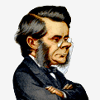 “The great tragedy of Science — the slaying of a beautiful hypothesis by an ugly fact.”
“The great tragedy of Science — the slaying of a beautiful hypothesis by an ugly fact.”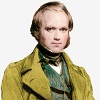 “…science consists in grouping facts so that general laws or conclusions may be drawn from them.”
“…science consists in grouping facts so that general laws or conclusions may be drawn from them.”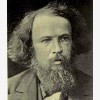 “It is the function of science to discover the existence of a general reign of order in nature and to find the causes governing this order. And this refers in equal measure to the relations of man (social and political) and to the entire universe as a whole…”
“It is the function of science to discover the existence of a general reign of order in nature and to find the causes governing this order. And this refers in equal measure to the relations of man (social and political) and to the entire universe as a whole…” “The real value of science is in the getting, and those who have tasted the pleasure of discovery alone know what science is. A problem solved is dead. A world without problems to be solved would be devoid of science.”
“The real value of science is in the getting, and those who have tasted the pleasure of discovery alone know what science is. A problem solved is dead. A world without problems to be solved would be devoid of science.” “The aim of science is to seek the simplest explanations of complex facts. We are apt to fall into the error of thinking that the facts are simple because simplicity is the goal of our quest. The guiding motto in the life of every natural philosopher should be, Seek simplicity and distrust it.”
“The aim of science is to seek the simplest explanations of complex facts. We are apt to fall into the error of thinking that the facts are simple because simplicity is the goal of our quest. The guiding motto in the life of every natural philosopher should be, Seek simplicity and distrust it.”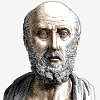 “Science begets knowledge; opinion begets ignorance.”
“Science begets knowledge; opinion begets ignorance.” “Our society, in which reigns an eager desire for riches and luxury, does not understand the value of science. It does not realize that science is a most precious part of its moral patrimony. Nor does it take sufficient cognizance of the fact that science is at the base of all the progress that lightens the burden of life and lessens its suffering.”
“Our society, in which reigns an eager desire for riches and luxury, does not understand the value of science. It does not realize that science is a most precious part of its moral patrimony. Nor does it take sufficient cognizance of the fact that science is at the base of all the progress that lightens the burden of life and lessens its suffering.” “Science is a wonderful thing if one does not have to earn one’s living at it. One should earn one’s living by work of which one is sure one is capable. Only when we do not have to be accountable to anybody can we find joy in scientific endeavor.”
“Science is a wonderful thing if one does not have to earn one’s living at it. One should earn one’s living by work of which one is sure one is capable. Only when we do not have to be accountable to anybody can we find joy in scientific endeavor.” “In science the opinions of a thousand are not worth as much as one tiny spark of reason in an individual man.”
“In science the opinions of a thousand are not worth as much as one tiny spark of reason in an individual man.” “Science makes people reach unselfishly for truth and objectivity; it teaches people to accept reality, with wonder and admiration, not to mention the deep awe and delight that the natural order of things brings to the true scientist.”
“Science makes people reach unselfishly for truth and objectivity; it teaches people to accept reality, with wonder and admiration, not to mention the deep awe and delight that the natural order of things brings to the true scientist.” “It is a profound and necessary truth that the deep things in science are not found because they are useful; they are found because it was possible to find them.”
“It is a profound and necessary truth that the deep things in science are not found because they are useful; they are found because it was possible to find them.”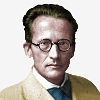 “Science is a game… In the presentation of a scientific problem, the other player is the good Lord. He has not only set the problem but also has devised the rules of the game – but they are not completely known, half of them are left for you to discover or to deduce.”
“Science is a game… In the presentation of a scientific problem, the other player is the good Lord. He has not only set the problem but also has devised the rules of the game – but they are not completely known, half of them are left for you to discover or to deduce.”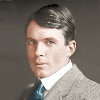 “The important thing in science is not so much to obtain new facts as to discover new ways of thinking about them.”
“The important thing in science is not so much to obtain new facts as to discover new ways of thinking about them.”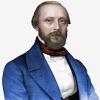 “No doubt science cannot admit of compromises, and can only bring out the complete truth. Hence there must be controversy, and the strife may be, and sometimes must be, sharp. But must it even then be personal? Does it help science to attack the man as well as the statement?”
“No doubt science cannot admit of compromises, and can only bring out the complete truth. Hence there must be controversy, and the strife may be, and sometimes must be, sharp. But must it even then be personal? Does it help science to attack the man as well as the statement?”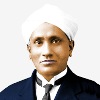 “I strongly believe that fundamental science cannot be driven by instructional, industrial and government or military pressures. This was the reason why I decided, as far as possible, not to accept money from the government.”
“I strongly believe that fundamental science cannot be driven by instructional, industrial and government or military pressures. This was the reason why I decided, as far as possible, not to accept money from the government.”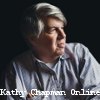 “Science is not a heartless pursuit of objective information; it is a creative human activity.”
“Science is not a heartless pursuit of objective information; it is a creative human activity.”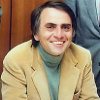 “Science is a self-correcting process. To be accepted, new ideas must survive the most rigorous standards of evidence and scrutiny.”
“Science is a self-correcting process. To be accepted, new ideas must survive the most rigorous standards of evidence and scrutiny.”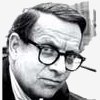 “Science is founded on uncertainty. Each time we learn something new and surprising, the astonishment comes with the realization that we were wrong before… In truth, whenever we discover a new fact it involves the elimination of old ones.”
“Science is founded on uncertainty. Each time we learn something new and surprising, the astonishment comes with the realization that we were wrong before… In truth, whenever we discover a new fact it involves the elimination of old ones.”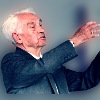 “It is curious how often erroneous theories have had a beneficial effect for particular branches of science.”
“It is curious how often erroneous theories have had a beneficial effect for particular branches of science.”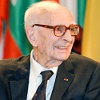 “Nor must we forget that in science there are no final truths.”
“Nor must we forget that in science there are no final truths.”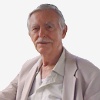 “Of course, if one ignores contradictory observations, one can claim to have an “elegant” or “robust” theory. But it isn’t science.”
“Of course, if one ignores contradictory observations, one can claim to have an “elegant” or “robust” theory. But it isn’t science.”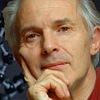 “Some people think that science is just all this technology around, but no it’s something much deeper than that. Science, scientific thinking, scientific method is for me the only philosophical construct that the human race has developed to determine what is reliably true.”
“Some people think that science is just all this technology around, but no it’s something much deeper than that. Science, scientific thinking, scientific method is for me the only philosophical construct that the human race has developed to determine what is reliably true.”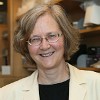 “We sometimes forget about the creative part of science. I think you need time to daydream, to let your imagination take you where it can… I’ve noticed among the creative, successful scientists who’ve really advanced things, that was a part of their life.”
“We sometimes forget about the creative part of science. I think you need time to daydream, to let your imagination take you where it can… I’ve noticed among the creative, successful scientists who’ve really advanced things, that was a part of their life.”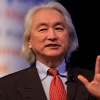 “Science, however, is never conducted as a popularity contest, but instead advances through testable, reproducible, and falsifiable theories.”
“Science, however, is never conducted as a popularity contest, but instead advances through testable, reproducible, and falsifiable theories.”